As temperatures have cooled and foliage in the D.C. area has changed from summer green to vibrant red, orange and yellow over the past several months, landscaping professionals and property owners have been busy clearing the colorful leaves as they drop. The most efficient means of clearing a yard is a standard gas-powered leaf blower, but starting Jan. 1, 2022, property caretakers within the District will be required to seek other options.
The D.C. Council voted in 2018 to ban the use and sale of gas-powered leaf blowers in the District but elected to wait three years to enforce the ban to give residential and commercial landscapers ample time to transition to electric and battery-powered leaf blowers.
The reason for the ban comes down to two major issues: noise and air pollution.
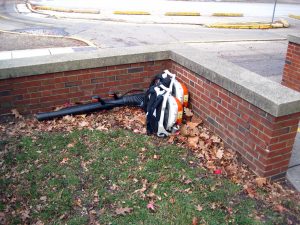
Noise pollution
According to Quiet Clean D.C., a policy and advocacy group instrumental in bringing the issue to the council’s attention years ago, gas-powered leaf blowers emit dangerous noise levels and are significantly louder than electric or battery-powered options.
Quiet Clean D.C. states on their website that most gas leaf blowers “impact the operator’s ears at 100 decibels or more” and according to the Centers for Disease Control and Prevention, exposure to 100 decibels for just 15 minutes a day can lead to hearing loss.
While the operators of noisy lawn care machinery are at the greatest risk of hearing loss, noise also causes harm to community members – 100-decibels is loud enough to penetrate walls and windows.
Air pollution
Chuck Elkins, a member of Quiet Clean D.C. and an ANC commissioner in Ward 3, said the health and climate effects resulting from the air pollution created by gas blowers make this “an environmental justice issue as well as a noise issue.”
Gas-powered leaf blowers typically operate using a two-stroke engine and burn a mix of oil and gasoline, emitting ozone-forming chemicals and particulate matter that are dirtier and more harmful than those emitted by cars.
According to a 2011 study by Edmunds, a two-stroke leaf blower emits 23 times the amount of carbon released by a Ford pickup truck and the hydrocarbon emissions from a leaf blower in a half-hour of yard work are “about the same as a 3,900-mile drive from Texas to Alaska in a [Ford pickup truck].”
Emissions Test
As with noise pollution, these fumes are most harmful to those operating lawn care machinery. Unprotected long-term exposure can lead to asthma, cardiovascular problems, cancer and a number of other health problems.
Community response
In the H Street NE neighborhood, some community members are aware of gas blowers’ health and climate effects and welcome the new restrictions. Others see the ban as a waste of the District’s time and money.
Harrison Flakker lives in the H Street NE neighborhood and said he supports the ban. “I have walked by gas-powered blowers and have been left with a gasoline taste in my mouth,” Flakker said.
But Stephen Harris, a resident of the neighboring Trinidad neighborhood, said the D.C. Council has “lost their thinking cap,” complaining that he just purchased a new gas-powered leaf blower a few months ago.
Professional response
Serena Masters Fossi owns Gardening and Gentle Redesign, a small landscaping business in the D.C. area and said the ban on gas-powered leaf blowers is a move in the right direction.
In a text, Masters Fossi said the “transition away from fossil fuel-powered vehicles and tools in landscaping is a miniature version of trying to do that more widely in society.”
But as a professional in the landscaping industry, Masters Fossi said she recognizes the financial and logistical strain the transition from gas to green-energy blowers creates for business owners and their staff.
“Most of the battery-powered leaf blowers have improved greatly and can meet almost all, but not all, of the professional uses required,” Masters Fossi said in an email to The Wash. “Very large properties would likely use up multiple batteries and that would be difficult to accommodate,” she said.
In her own business, Masters Fossi has already begun the transition to battery-operated blowers ahead of the Jan. 1, 2022 ban. She said her business recently purchased a backpack-style battery-powered blower which “holds the heavier batteries needed to last during the day.”
Masters Fossi shared that the new blower cost about $500, which is almost twice that of the average gas-powered backpack leaf blower but said, “we won’t really know the expense comparison until we use it for some time vis-à-vis how long they last.”
For businesses and individuals in the District looking to transition to green-energy blowers before the end of the year, D.C. Sustainable Energy Utility offers a rebate program to offset the cost of the new equipment.
Enforcing the ban
When it comes to enforcing the new ban, Elkins said much of the responsibility will fall on individuals.
After the ban goes into effect on Jan. 1, if D.C. residents notice gas-powered leaf blowers being used in the District, they can take a picture and submit it along with the name of the landscaping company to the D.C. Department of Consumer and Regulatory Affairs. The DCRA will then review the submission and issue a warning or a $500 fine when appropriate.
“We want people to comply,” Elkins said, “we don’t really want to cost them money […] we’d rather have them spend the money on buying the equipment rather than paying some kind of fine. It’s ultimately a $500 fine and you can buy a blower for less than that.”
D.C. isn’t the only local government working to eliminate gas-powered leaf blowers. The Town of Chevy Chase and Chevy Chase Village have already banned gas blowers and Montgomery County and Fairfax County both seem poised to follow suit.

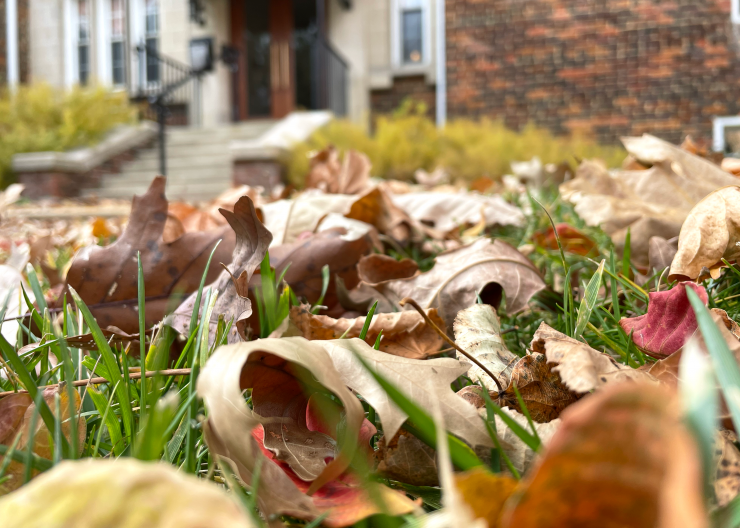
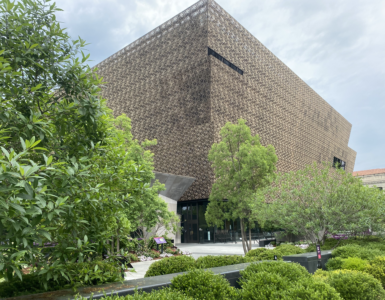
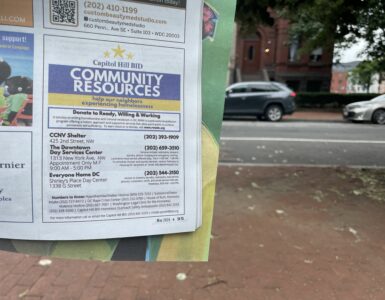
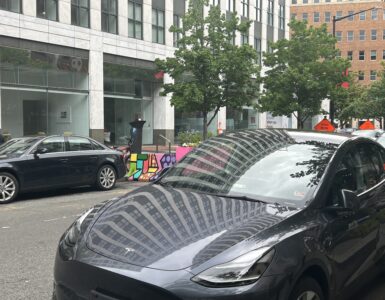










Being I’m a resident of Ward 8 I want to be in compliance. However, these restrictions were new to me because I was stopped by an individual who told me on the street as I was using my gas blower. If I had knower this beforehand, I would not have had my gas lawn mower serviced and it cost $130.00. I could have used this money to purchase a new electric lawn blower, mower and trimmer set.
There has to be better communication from DC government regarding the restrictions of gas power tools so that residents, like myself can be in compliance.
Fox News said a person using a gas blower in DC can be locked up.
Is this another stretching the truth esp since they point out it’s a democrat city